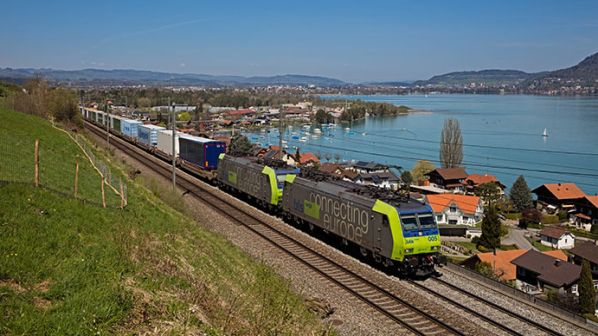Freight traffic also showed a healthy increase of 9.9%, rising from 2.5 billion net tonne-km to 2.76 billion. BLS Cargo says this helped to boost Switzerland’s market share of rail freight crossing the Alps by 3% to 30%.
The increase in volume was achieved despite a reduction in the number of trains being operated from 17,529 in 2017 to 17,051 last year. This was due to many line closures for track maintenance work and upgrading. BLS Cargo wants to see more prudent planning procedures for track maintenance and construction, particularly on the main freight corridors. “Before further serious closures are made, the 4m-corridor on the Gotthard must open in December 2020 so that traffic can be diverted via this axis,” says BLS Cargo.
In 2018 BLS Cargo, together with other European rail-freight operators, launched the “Rail Freight Forward” initiative with the aim of shifting more freight from road to rail to help meet the European Union’s objective of increasing the proportion of rail freight in Europe from 18% to 30% by 2030. As part of this initiative, BLS Cargo says it will invest in new multi-system locomotives this year, which will be put into service on cross-border routes.
BLS Cargo, which is owned by BLS (52%), SNCF Logistics (45%) and Ambrogio (3%), is already strengthening its market position with its takeover of the Belgian freight operator Crossrail. “We see the main potential in being able to operate trains jointly on through services, which means we can make more efficient use of the international fleet of locomotives on the freight corridor to Belgium,” says Mr Dirk Stahl, CEO of BLS Cargo.

